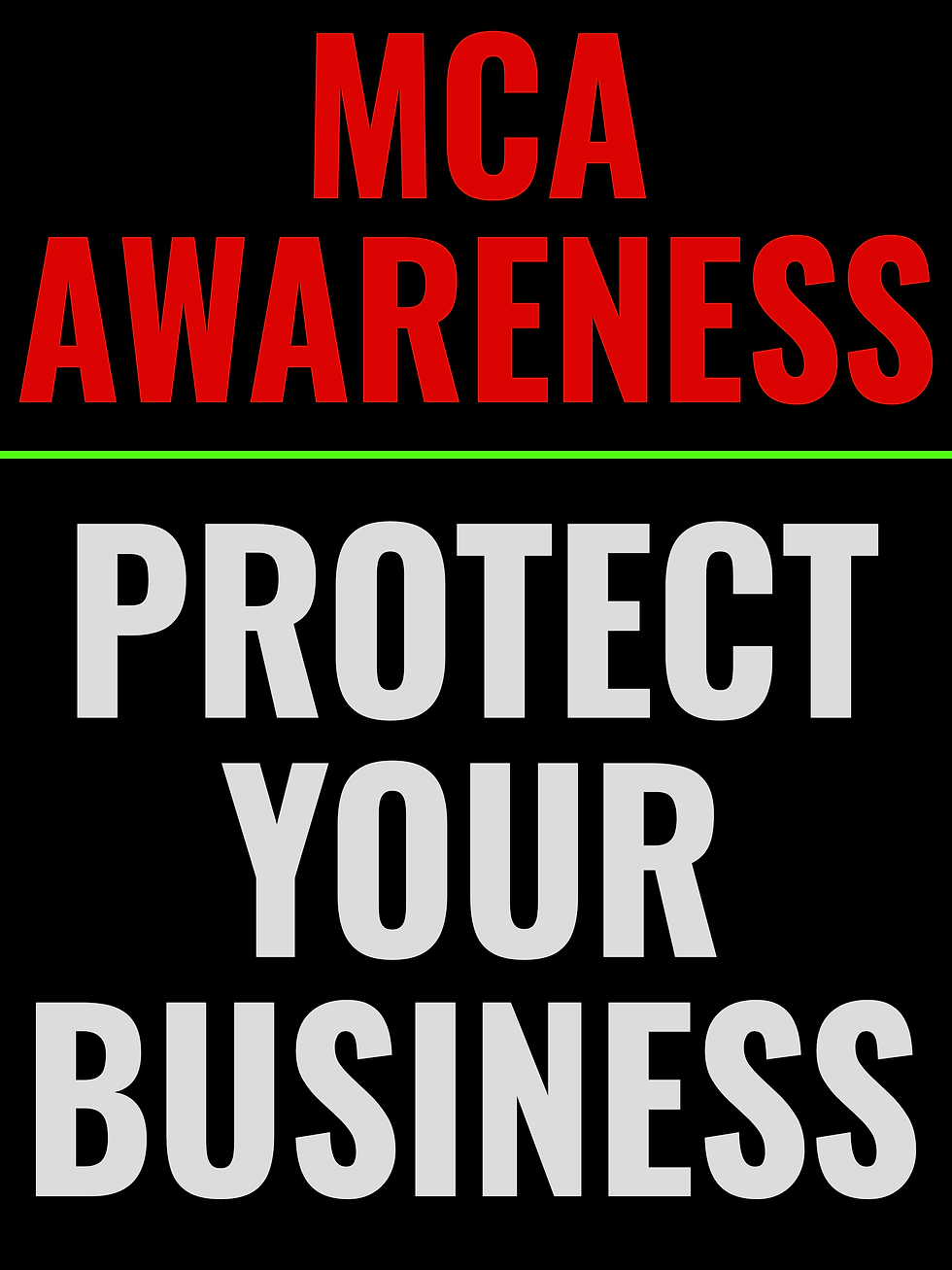When “The Next Loan” Never Comes: A Common MCA Scam - Carroting
- Aug 14, 2025
- 3 min read
Updated: Sep 22, 2025
One of the most common merchant cash advance scams looks simple on the surface. A broker or funder promises a business owner a real term loan — something stable, long-term, with lower payments. But there’s a catch:
“You can only get the loan if you first sign a Merchant Cash Advance.”
For many small businesses, this sounds reasonable. They need money now, and they believe a conventional loan is right around the corner. So, they take the MCA, expecting that once they prove themselves, the loan will come through.
But it never does.
The promised loan is a complete misrepresentation — a carrot dangled to make the business sign an MCA deal that drains their cash flow with daily or weekly debits. Once the ink is dry, the broker disappears, the phone calls stop, and the “loan department” never existed in the first place.
Why This MCA Carroting Scam Works
False hope: Business owners believe they’ll soon refinance into a safer product.
Urgency: The MCA is presented as a quick bridge while the “real loan” is processed.
Paper trail: By the time the merchant realizes the loan isn’t coming, they’re already locked into the MCA contract.
Why This Matters
This isn’t just bad business — it’s fraud. Making false promises to induce someone into signing a financial agreement is a deceptive practice. Industry lawyers and regulators know about this tactic, but very few cases have gone to court.
That’s why awareness matters. The more merchants recognize the scam, the harder it is for brokers to keep using it.
Understanding Merchant Cash Advances
Merchant cash advances (MCAs) are often marketed as quick solutions for businesses in need of immediate cash. However, they come with high costs and risks.
The Mechanics of MCAs
MCAs work by providing businesses with a lump sum of cash in exchange for a percentage of future sales. This can seem appealing, especially when cash flow is tight. But the reality is that the fees can be exorbitant.
The Hidden Costs
Many business owners fail to realize how much they will end up paying. The effective interest rates can be significantly higher than traditional loans. This can lead to a cycle of debt that is hard to escape.
What You Can Do
Be skeptical of “future loan” promises. If a broker says you’ll qualify for a better loan later, get it in writing — and check if the company even offers real loans.
File reports. If this happened to you, make a record. Report it to your state attorney general, the FTC, and the FBI’s Internet Crime Complaint Center.
Share your story. At MCA Exposed, we collect merchant reports to show how widespread these practices are. One voice can be dismissed, but many together create pressure for action.
The Importance of Reporting
Reporting these scams is crucial. It helps build a case against fraudulent practices and holds predatory companies accountable.
How to Report
When you report an MCA scam, include as much detail as possible at MCA fraud report. This includes the name of the broker, the terms of the agreement, and any communications you had.
Staying Informed
Knowledge is power. Stay informed about the latest scams and tactics used by brokers. Follow reputable sources and join communities that focus on protecting small businesses.
Conclusion
Awareness is your best defense against merchant cash advance scams. By understanding how these scams work and taking proactive steps, you can protect your business. Remember, if something sounds too good to be true, it probably is.
Victim of an MCA Scam
MCA Exposed is a platform that exposes the reality behind merchant cash advance scams targeting small businesses. If you’ve been affected or want to learn more, visit the site to read real stories, report your experience, and protect others from falling into the same trap.



